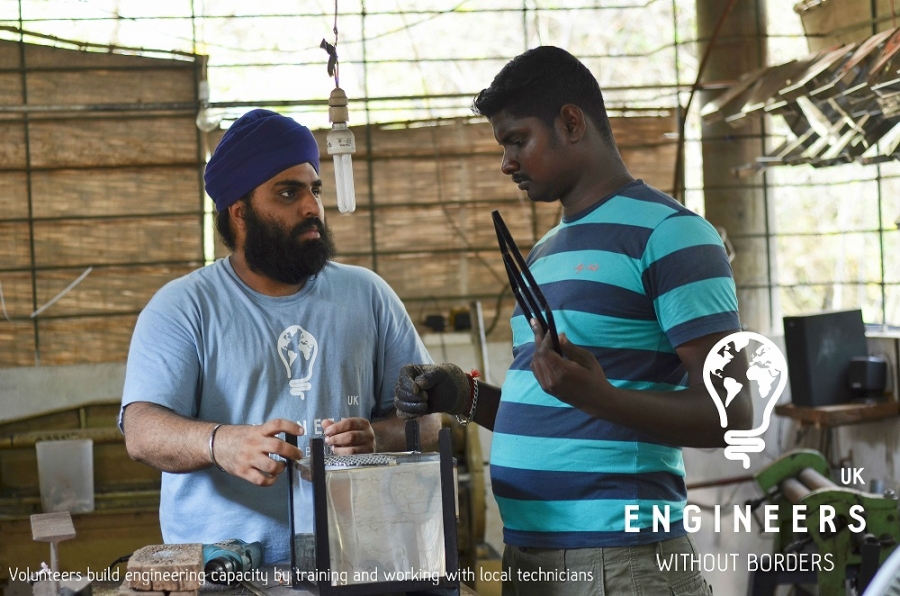
Inspiring and enabling global responsibility in engineering in the Global South with Engineers Without Borders (EWB).
The partnership between EWB-UK and the LCEDN is delivering a targeted ‘Young UK Engineers’ strand of work alongside the wider work of the RAEng. This focuses on two key work strands.
1. The first of these focuses on EWB-UK’s work in inspiring and educating the UK’s engineers of the future. This is being achieved via (i) strengthening the energy and development-focused materials to be used in the 2017/18 Design Challenge – an inter-university design competition for first and second year undergraduate engineers requiring them to focus on the social, environmental and economic impacts of their engineering design (approximately 5,000 engineering undergraduates participate each year), and (ii) strengthening the energy and development focused resources for schools and youth leaders, delivered through the UK network of Engineers Without Borders UK and STEMNET trained volunteer ambassadors. Work focuses on drawing out and embedding the case studies from EWB’s international work in the energy sector into a suite of resources targeted at these audiences. These resources are disseminated to those audiences through EWB-UK’s existing channels and via the opportunities provided across all of the partnerships outlined in this proposal.
2. The second work strand focuses on providing small-scale core support to facilitate the effective operation of the EWB’s energy-focused international placements (this scheme provides qualified volunteer engineers to enhance the engineering skills and knowledge of partner organizations working in the energy sector – currently in Kenya, the Philippines, Malaysia, India and Peru). It also seeks to embed learning from the programme, capturing key lessons learnt and improving knowledge generation, via the production of EWB resources and their dissemination across the wider networks of the LCEDN and specific elements of this work programme (e.g. via a targeted Smart Villages webinar and the attendance of returned EWB placements at key events).
Engineers Without Borders:
EWB’s activities in the development arena stem from the conviction that engineering is vital for human development and key to addressing global challenges such as the effects of climate change, resource depletion, increasing urbanisation and rapid population growth. By recognising this, and taking action to change how engineering is perceived, taught and practiced, Engineers Without Borders UK leads a movement to inspire, enable and influence global responsibility through engineering. The organisation works at all levels of UK education to inspire more people, and greater gender and ethnic diversity, to become engineers. They also work to influence those who are already engineers to consider more broadly the social and environmental impact of their work. Their programme of activities enable the use of engineering as a catalyst for human development through working with local partners in Latin America, sub-Saharan Africa and Southern Asia to provide resilient shelter, universal access to water and sanitation, and reliable and sustainable energy to their communities. 60% of Engineers Without Borders UK’s international placements are on energy for development, working closely with partners in developing countries; and energy for development is a major component of Engineers Without Borders UK’s flagship youth programmes, inspiring and educating the UK’s engineers of the future.

Photograph credit: © Engineers Without Borders
